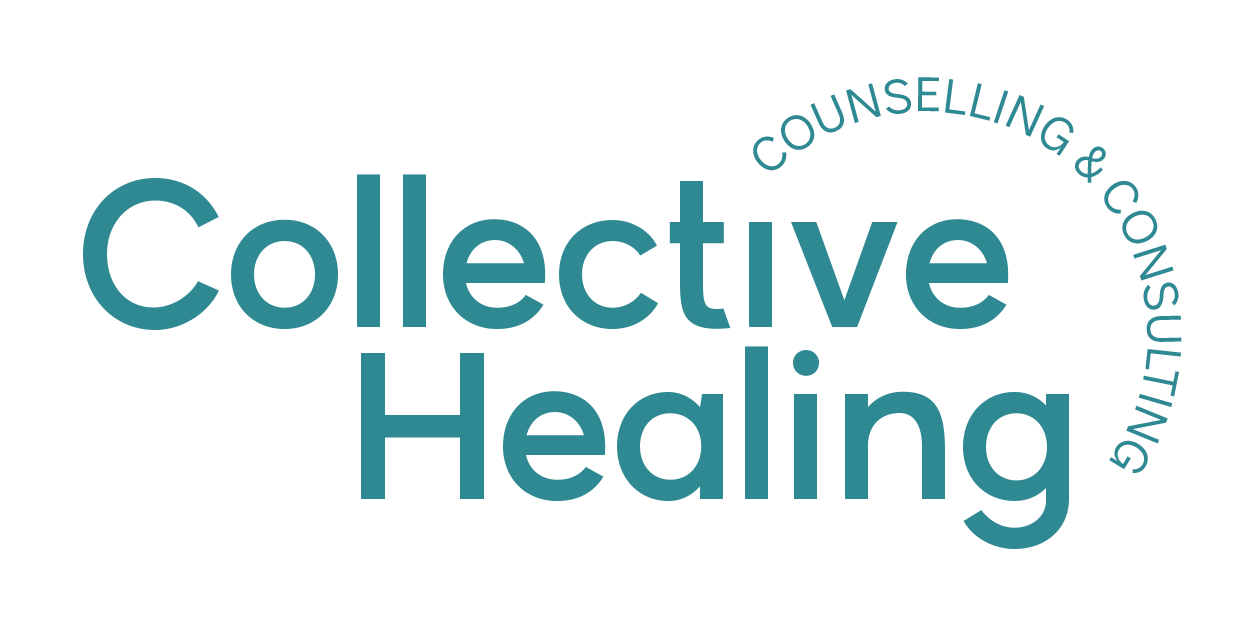Frequently Asked Questions
What kind of counselling does Collective Healing offer?
Our collective approaches to counselling are client-centered, trauma-informed, and sex-positive. We strive towards collaborative sessions that centre each client as the expert of their own experience. We invite a whole-body awareness into our sessions by bringing attention to the information our physical bodies can deliver through posture, gesture, and other forms of expression. From this common ground, each counsellor brings a unique perspective and their approach may differ based on their practice and lived experience.
To learn more about the specific services we offer, click here.
To learn more about our counsellors' approaches, click here.
Are sessions available in-person or online?
Both in-person and virtual sessions are available, and each counsellor is currently providing services based on their comfort level in light of the COVID-19 pandemic. We offer services in-person, virtually (by video via JaneApp or Doxy.me), and by telephone.
Click here to learn more about our team members or here to learn more about our lower-cost student counsellors.
Are counselling sessions confidential?
Sessions are entirely confidential between you and your counsellor. There are, however, mandated limits to confidentiality in the following circumstances:
Your therapist believes you are at imminent or serious risk to harm yourself or others.
Your therapist believes a child or vulnerable adult is at risk of or is being abused.
Your therapist or Collective Healing is officially subpoenaed in a court case.
Luisa Ospina, the practice owner, has access to all client files.
What does sex-positive counselling look like?
We all deserve to feel pleasure. Sex-positive counselling considers the diversity of bodies and experiences of pleasure, as well as the intersections of oppression that lead to feelings of shame. Sex-positive counselling seeks to support clients to feel empowered in their right to pleasure.
Who can access services through Collective Healing? Who do you work with?
We prioritize working with folks who experience marginalization and oppression—this includes 2SLGBTQAI+ folks, sex workers, and BIPOC folks.
We work with individuals in all relationship structures, including polyamory and non-monogamy.
We offer our services to individuals, relationships, groups, support workers, students, and counsellors (through supervision).
We currently only offer services to individuals aged 13+.
What are your fees?
We provide financial accessibility on a sliding scale. Information about our associates and their fees can be found here.
Our Collaborative Space Practicum Program provides access to lower-cost counselling services provided by student counsellors.
We trust that our clients will select a payment option that best suits their financial situation.
What is your cancellation policy?
Cancellations and appointment changes require at least 48 hours’ notice by phone or email.
If a session is cancelled with less than 48 hours’ notice, the client is responsible for half of the session fee.
Sessions cancelled with less than 24 hours’ notice and no-shows are charged the full session fee.
Is counselling covered by my extended health benefits?
Sessions with Registered Clinical Counsellors (RCCs), Certified Canadian Counsellors (CCC), Registered Therapeutic Counsellors (RTCs), and Registered Social Workers (RSWs) are covered by many extended health care benefit programs. Please confirm with your extended benefits provider reimbursement for sessions provided by the counsellor(s) you want to work alongside. Each counsellor has their credentials listed on their profile.
Student counsellors and pre-licensed associate counsellors are supervised by a Clinical Supervisor with RCC credentials. Some insurance companies will cover services provided by student counsellors and pre-licensed associate counsellors. Some insurers will not cover services by counsellors without their own designation unless the Clinical Supervisor is present for the duration of the session (we do not offer this option). We recommend you check with your provider prior to your first appointment with your counsellor.
An official receipt will be provided to submit for reimbursement after each session. We do not provide a direct billing service.
Do you accept CVAP, FNHA, and ICBC?
Crime Victim Assistance Program (CVAP): If you are a victim of or witness to a crime where you or someone else was injured physically or emotionally, you may be eligible for financial assistance from CVAP to cover the partial or full cost of counselling sessions.
If you are currently registered for financial assistance with CVAP, you are required to work with a counsellor who is also registered in order to receive financial assistance. You will be asked to provide a copy of your letter of approval for financial assistance as well as your claim number.
Clients with extended benefits may be able to use these to cover the difference between the counselling fee and the CVAP reimbursement fee.
We have a few counsellors who are approved CVAP providers, please reach out to us to be connected with them!
For more information about CVAP, please click here!
First Nations Health Authority (FNHA): FNHA mental health benefits cover counselling for people with a status number. Even if you do not have status, you may be eligible for mental health coverage through one of the specialized mental health programs funded by Indigenous Services Canada.
You may be eligible if you are a former student, or are a family member of a former student, who attended a residential school listed in the 2006 Indian Residential Schools Settlement Agreement. You may also be eligible if you are experiencing trauma or distress stemming from Missing and Murdered Indigenous Women and Girls and 2S folks in Canada.
We have a few counsellors who are approved FNHA providers, please reach out to us to be connected with them!
For more information about FNHA, please click here!
ICBC: None of our counsellors are currently doing direct billing with ICBC; however, it is possible for ICBC to reimburse costs of counselling related to a motor vehicle accident if you provide them with a receipt. Please check your support package and inquire with your adjuster about coverage prior to your first appointment.
